Who is Oduduwa? Complete History, Origin, and Legacy of the Yoruba Ancestor
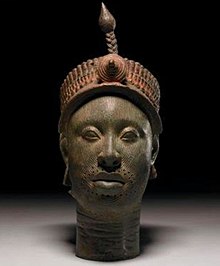
The story of who is Oduduwa represents one of Africa’s most fascinating historical and mythological narratives. As the legendary progenitor of the Yoruba people, Oduduwa’s tale weaves together elements of divine intervention, political prowess, and cultural foundation that continue to shape millions of lives today.
According to Yoruba traditional accounts, Oduduwa descended from the heavens, sent by the supreme god, Olodumare, to create the earth. He arrived with a bag of divinely powerful items: a rooster, a handful of soil, and a chameleon. With these, he began the task of creating the world.
However, this celestial origin is not the only narrative. Some historians argue that Oduduwa may have migrated from the Nile Valley, linking him to Egyptian or Nubian civilizations. His arrival in Ile-Ife, the cradle of Yoruba civilization, is often seen as symbolic of the cultural and political revolution that occurred during his reign.
Whatever version you lean towards, one thing is clear: Oduduwa’s origin is the bedrock upon which Yoruba culture and history rest.
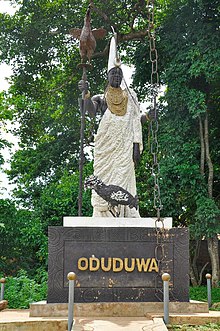
The Divine Origins: Who is the Father of Oduduwa?
The question of who is the father of Oduduwa presents two distinct narratives that have persisted through generations:
The Divine Descent Theory
- Direct creation by Olodumare (Supreme God)
- Descended from heaven via a golden chain
- Carried divine instruments of creation
- Accompanied by 400 deities
The Mecca Migration Theory
According to the Institute of African Studies (https://www.ias.edu.ng):
- Originally a prince from Mecca
- Led followers westward during religious conflicts
- Settled in Ile-Ife after extensive journey
- Established new dynasty through conquest and diplomacy
The True History of Oduduwa: Separating Fact from Legend
As with many ancient figures, the true history of Oduduwa is interwoven with myth, legend, and fact. Some believe that Oduduwa was a divine being sent to earth to restore order, while others view him as a powerful leader who emerged from human origins.
Yoruba historians and spiritualists often describe Oduduwa as a being who shaped Yoruba political and spiritual systems. He is credited with creating Ifa, a system of divination still used in Yoruba culture today. His innovations in governance and religion were essential in creating the unity that still binds the Yoruba people together.
Yet, historical accounts, like many oral traditions, are often open to interpretation. Some scholars have sought to demystify Oduduwa, attempting to strip away the divine narrative to reveal a historical leader. But this debate remains unresolved. Could Oduduwa have been a real-life ruler who, over time, became mythologized? Or was he always seen as a celestial being who walked among mortals?
Understanding the true history of Oduduwa requires examining multiple historical sources and archaeological evidence:
Archaeological Evidence
The National Commission for Museums and Monuments Nigeria (https://www.ncmm.gov.ng) has documented:
- Ancient artifacts dating to Oduduwa’s era
- Royal regalia preserved in Ile-Ife
- Sacred grove locations
- Traditional landmarks
Historical Documentation
- Oral traditions passed through generations
- Written accounts from early European visitors
- Religious texts and sacred verses
- Royal court chronicles
What is the Origin of Oduduwa? The Foundation of Ile-Ife
The question of what is the origin of Oduduwa leads us to Ile-Ife, the sacred city recognized as the cradle of Yoruba civilization.
The Creation Narrative
- Landing at Ile-Ife from heaven
- Finding water-logged earth
- Spreading soil to create land
- Planting the sacred palm nut
Political Establishment
- Formation of the first kingdom
- Institution of divine kingship
- Development of social structures
- Establishment of market systems
How Did Oduduwa Die? The Mystery of the Great King’s Passing
Of all the stories surrounding Oduduwa, one of the most mysterious is his death. How did Oduduwa die? There are conflicting accounts of his final days, with some suggesting that Oduduwa didn’t die in the traditional sense but rather ascended back to the heavens, completing the divine circle of his life.
Another version claims that Oduduwa grew old and passed away, leaving behind his children to carry on his legacy. His tomb, according to some traditions, is in Ile-Ife, where many Yoruba people still make pilgrimages to honor his memory.
Regardless of the version of his death you believe, Oduduwa’s departure from this world marked the end of an era. However, his legacy lives on in the hearts and minds of the Yoruba people.
Traditional Accounts
- Transformation into a chain returning to heaven
- Descent into the earth at Ile-Ife
- Deification after death
- Sacred burial site in Ile-Ife
Legacy After Death
According to the Yoruba Historical Society (https://www.yorubahistory.org):
- Establishment of sixteen kingdoms
- Distribution of crowns to his children
- Creation of political structure
- Institution of cultural practices
The Cultural Impact of Oduduwa’s Legacy
Religious Influence
- Foundation of traditional worship
- Sacred rites and ceremonies
- Spiritual hierarchies
- Divine kingship concept
Political Structure
- Creation of the crown system
- Establishment of royal lineages
- Development of governmental systems
- Institution of traditional councils
Modern Significance and Continued Relevance
Why Does Oduduwa’s Story Matter Today?
In modern times, the story of Oduduwa isn’t just about history—it’s about identity. For millions of Yoruba people, Oduduwa represents the beginning of their cultural heritage. He stands as a symbol of pride, a reminder of their rich ancestry.
His life, though shrouded in myth, teaches lessons about leadership, unity, and the importance of cultural preservation. In an age where many African cultures face challenges from modernization, globalization, and external influence, Oduduwa’s story serves as a powerful reminder of the need to hold onto one’s roots.
Contemporary Recognition
- Annual festivals and celebrations
- Traditional institutions
- Cultural preservation efforts
- Educational programs
Global Impact
The World Heritage Foundation (https://www.worldheritage.org) recognizes:
- Influence on diaspora communities
- Cultural preservation initiatives
- International recognition
- Academic studies and research
The Royal Houses and Descendants
Major Royal Lineages
- Ooni of Ife
- Alaafin of Oyo
- Awujale of Ijebu
- Other prominent royal houses
Contemporary Leadership
- Modern traditional rulers
- Cultural ambassadors
- Community leaders
- Heritage preservationists
Archaeological Discoveries and Historical Sites
Sacred Locations
- Ile-Ife shrines
- Royal palaces
- Ancient markets
- Historical monuments
Artifacts and Relics
According to the British Museum (https://www.britishmuseum.org):
- Ancient bronze castings
- Sacred implements
- Royal regalia
- Traditional artwork
Cultural Practices and Traditions
Festival Celebrations
- Annual commemorative events
- Traditional ceremonies
- Cultural exhibitions
- Community gatherings
Artistic Expressions
- Traditional music
- Dance forms
- Dramatic presentations
- Visual arts
Educational and Research Perspectives
Academic Studies
- Historical research
- Archaeological investigations
- Anthropological studies
- Cultural preservation efforts
Contemporary Learning
- Educational programs
- Cultural workshops
- Heritage preservation
- Youth engagement initiatives
Looking Forward: Preserving Oduduwa’s Legacy
Modern Initiatives
- Digital documentation
- Cultural education programs
- Heritage preservation projects
- International recognition efforts
Future Considerations
- Technological preservation methods
- Global cultural exchange
- Educational development
- Community engagement
Final Reflections: The Enduring Impact of Oduduwa
The legacy of who is Oduduwa continues to resonate through generations, shaping cultural identity and social structures. His influence extends beyond traditional boundaries, touching lives across continents and cultures.
Key Takeaways
- Foundational importance in Yoruba history
- Continuing cultural relevance
- Global historical significance
- Enduring legacy of leadership
Citations:
- Journal of African History (https://www.africanhistory.org)
- Yoruba Cultural Institute (https://www.yorubaculture.org)
- Nigerian Historical Society (https://www.nigerianhistory.org)
- African Heritage Foundation (https://www.africanheritage.org)
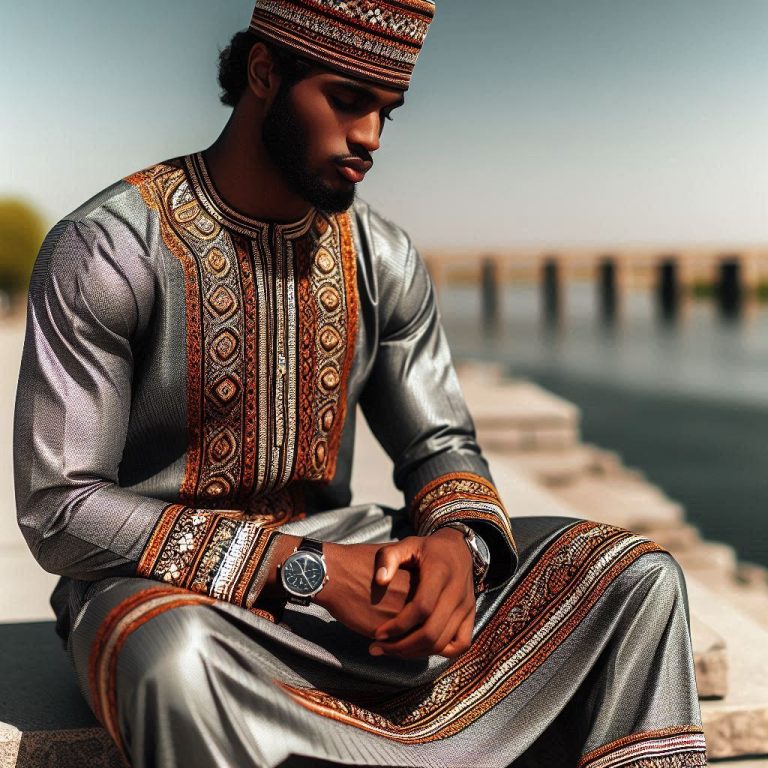
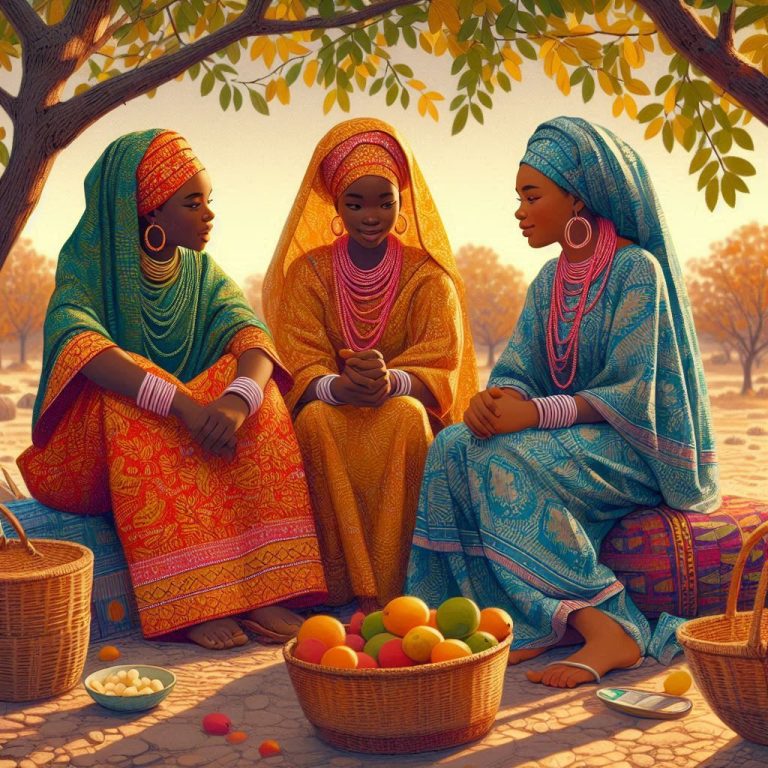
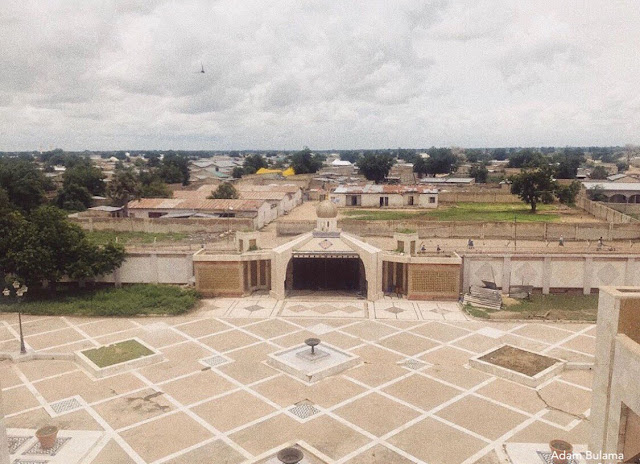
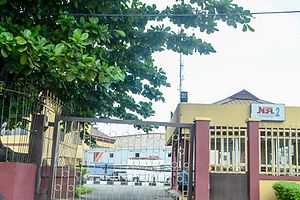


One Comment